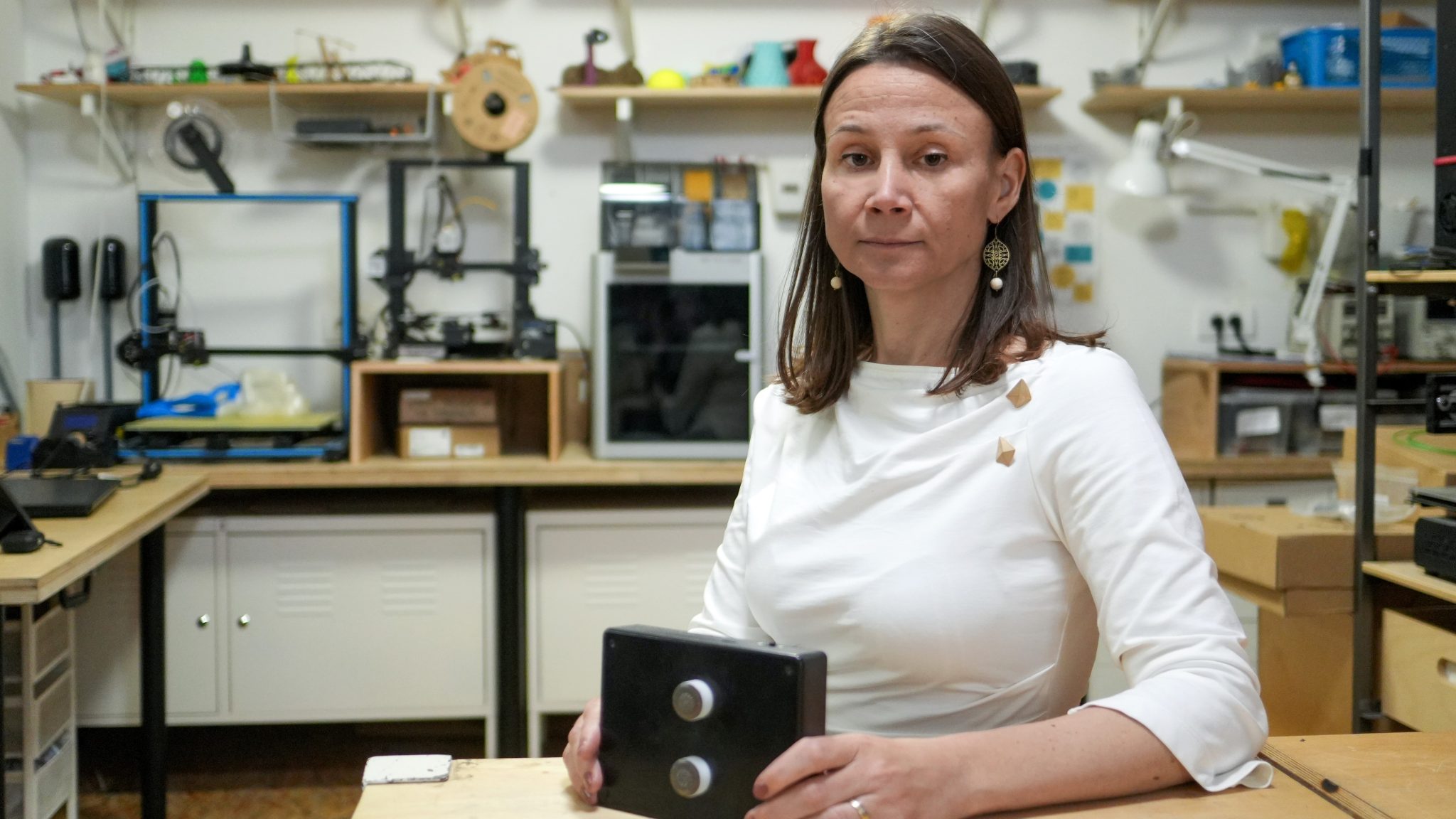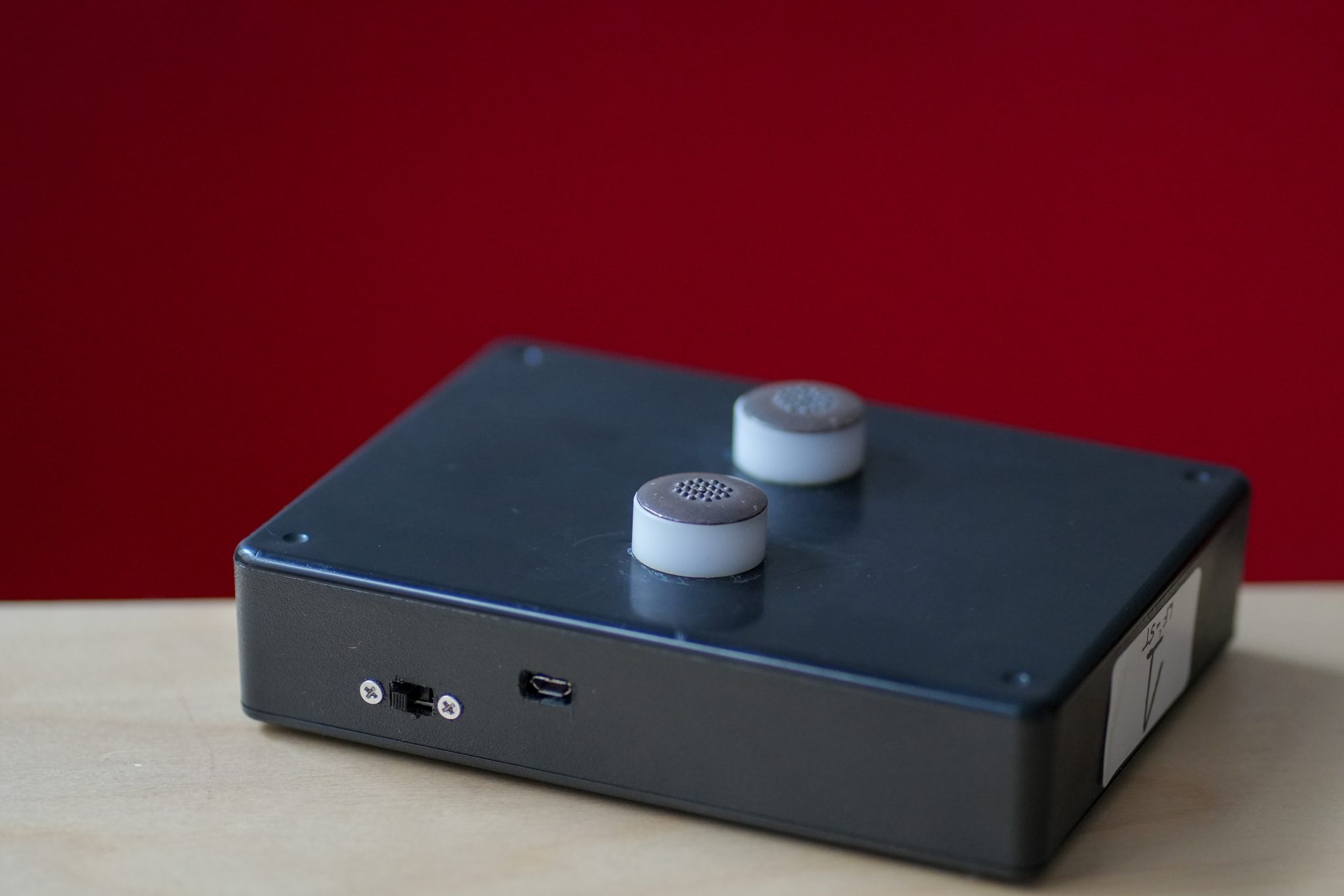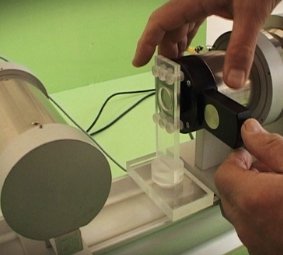Photo: Marko Risović /Elementarium
Pulmonary congestion, which manifests as an accumulation of fluid in the lungs, is among the most common and dangerous complications that occur in patients with heart failure. This condition often develops quietly without clear symptoms until it becomes critical, at which point urgent hospital treatment is necessary. Its early detection would enable timely therapy, thereby saving many lives and significantly reducing treatment costs. The Vinča Institute’s PSTAR research group, in cooperation with the company Intermedic Group and the University Clinical Center of Serbia, has developed an innovative mobile device suitable for real-time detection of pulmonary congestion at home.
Photo: Marko Risović /Elementarium
The device operates on the principle of differential bioimpedance measurement. It is part of a telemedical system that enables self-measurement and easy device operation via a smartphone application. The patient promptly receives clear instructions and feedback on further steps from the doctor, making it possible to perform the test anywhere and at any time.
Photo: Marko Risović /Elementarium
This innovative technology is a result of many years of successful work by Vinca’s team on the development of mobile diagnostic devices. Its development was made possible by the D-LIFE project, after which the device got its name. The project was financed within the Collaborative Grant Scheme Program that stimulates collaboration between the private and public research and development sectors. The grant made it possible to develop a product prototype and to perform the first clinical tests. The next steps towards commercialization of D-LIFE are the prototype miniaturization so that it can be carried in a purse or even a pocket, further clinical validation, and a partnership with a medical center that would be the first to offer this technology on the market.
You can read the text on the following website:
Dijagnoza (k)od kuće - ELEMENTARIJUM









